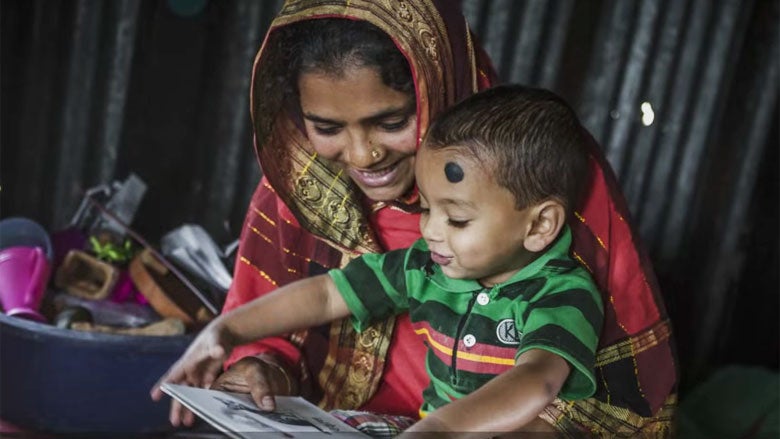
This Children’s Day, I am thinking back to an event on the link between quality education and inclusive growth that we had last month in Lima, Peru. The event was memorable not only because of Eric Hanushek’s excellent presentation and the lively panel discussion that followed, but also because there were many students from Lima in the audience.
A month later, I still remember the young faces and how intently they were paying attention to everything that was being said about their futures. At the time, I thought, this is how it should be. There should always be children and youth involved and engaged when the discussion is about them.
Yet the truth is that children rarely participate in conversations pertaining to them. This is obviously truest of children who are not yet in school, who are too young to have any kind of voice, and who depend entirely on the adults around them for their well-being.
In poor communities around the world, the child’s mother may not even have a voice for herself, leave alone for her children. This is why it is so important for champions and advocates to draw attention to children’s issues—the attention of policymakers in government as well as, most importantly, the attention of parents themselves.
A very exciting recent champion of young children’s issues is Novak Djokovic, arguably one of the greatest tennis players in history. Please take a minute to listen to what Novak has to say as he works with UNICEF and the World Bank to bring home the importance of giving kids a head start at the right age.
Novak’s championship of early childhood development is based not just on his own powerful life story, but also on hard evidence from many countries where early childhood development programs are having an impact.
For example, one evaluation that we conducted of a preschool program run by Save the Children in Mozambique showed that children enrolled in this program often entered school at the right age, were more ready to learn, and less likely to drop out from primary school. Subsequently, the government of Mozambique has been making a strong effort to bring early childhood development to the poorest communities in the country.
Another really great finding—this one from a study by Gertler, Heckman, and others in Jamaica—shows that early childhood stimulation can raise a child’s income significantly when she or he grows up. I look forward to the results of a new study that is being carried out in Bangladesh to show mothers and other caregivers in poor families how to stimulate children. Once again, this is an impact evaluation of a Save the Children program, linked with the Bangladesh National Nutrition Service.
This Children’s Day, let us dedicate ourselves, like Novak, to doing what is right for young children, who have no voice, and to finding out more about what works for them. Paying attention to children’s healthy development is not only the right thing to do as we continue the effort to end poverty, it is also increasingly backed by strong evidence and is part of the new Sustainable Development Goals agenda.
Follow the World Bank Group education team on Twitter @wbg_education .


Join the Conversation